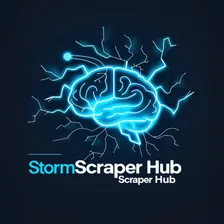YouTube Email Extractor 📩📍 - Fast & cheap 💬⭐
Pricing
$9.90/month + usage
YouTube Email Extractor 📩📍 - Fast & cheap 💬⭐
🔍 Extract emails from YouTube quickly! 🚀✨ Search by keywords, email domains, and scrape unlimited emails 📧💻. Filter by domains like Gmail, Yahoo, or custom options 🔑💡. Get accurate email lists with YouTube source links 🔗. Start now and unlock endless possibilities for outreach! 🌟🔥
Pricing
$9.90/month + usage
Rating
3.5
(25)
Developer

Storm_Scraper
Actor stats
29
Bookmarked
868
Total users
19
Monthly active users
3 months ago
Last modified
Categories
Share

